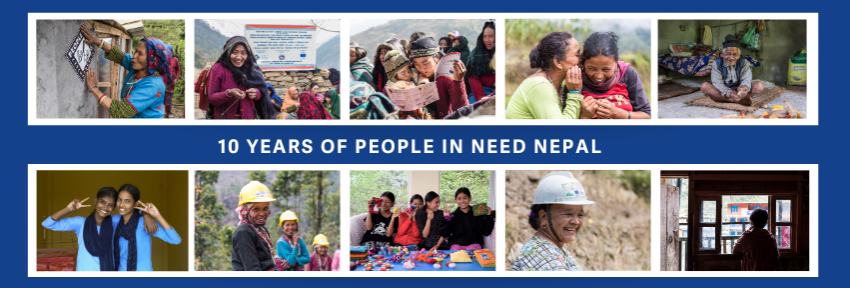People in Need (PIN) is a non-governmental, non-profit, international organization founded in the Czech 1992. PIN arrived in Nepal as part of a humanitarian response to the April 25, 2015, earthquake. Since its inception in Nepal, PIN Nepal has had a strong role in designing and facilitating systemic solutions advocating for and addressing the needs of vulnerable populations affected by disasters including person categories who live in geographically remote areas of the country, historically marginalized ethnic groups, and those marginalized because of their age and/or gender identity. Currently, PIN Nepal is implementing programmes under three strategic pillars:
1. Emergency response and recovery,
2. Climate resilience, and
3. Civil society and inclusive governance.
PIN Nepal team works in and promotes strong partnerships with civil society, Government of Nepal, academia, private sector and other key stakeholders in Nepal. Together with them, PIN Nepal has become one of the pioneer organizations advancing programmes such as landslide disaster preparedness and anticipatory action, climate and flood resilient housing, durable local solutions, climate change modelling for more inclusive and efficient local decision-making, girls and inclusive education, waste management and circular economy approaches. PIN is strongly committed to safeguarding children and vulnerable adults, including persons with disabilities, in line with its safeguarding framework and child protection policy.


